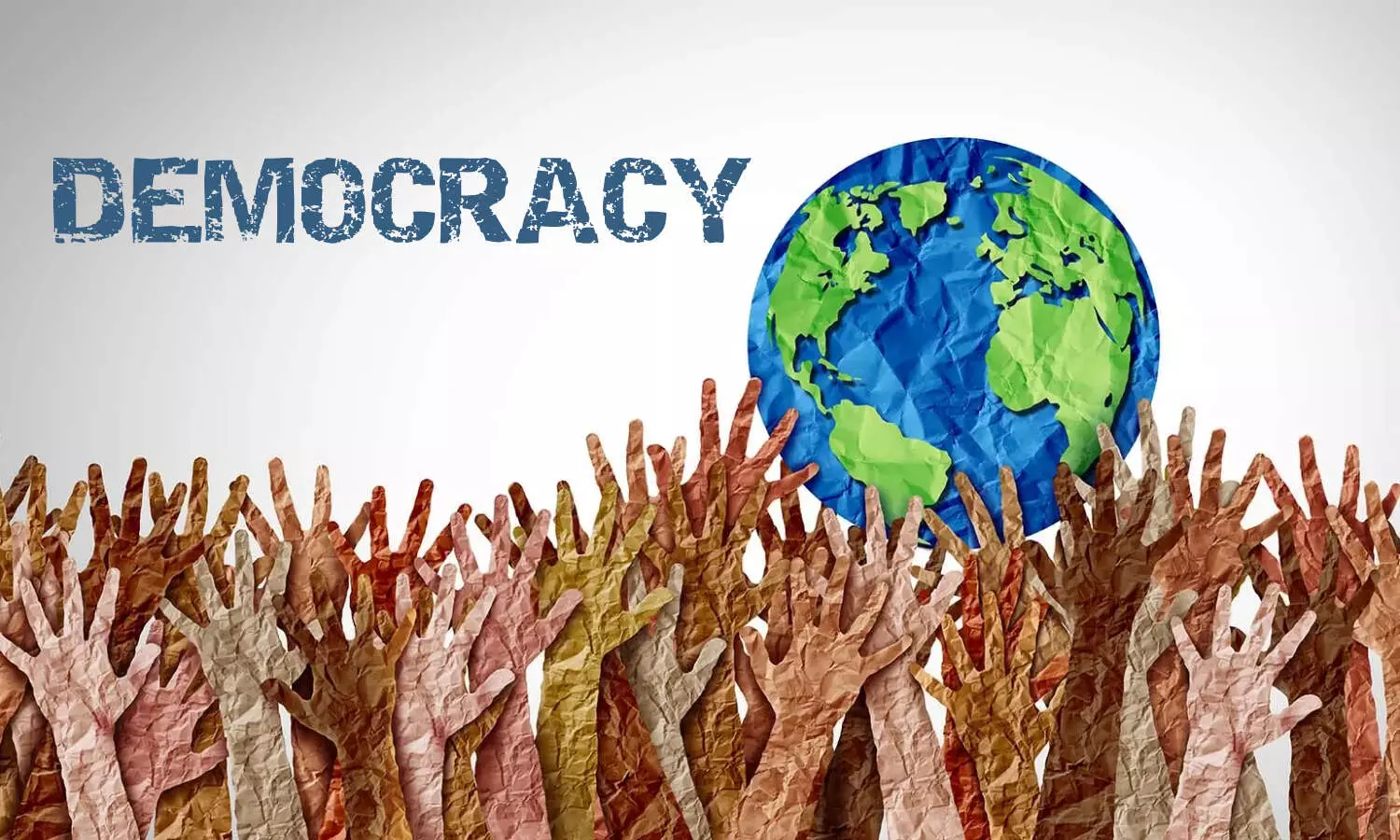International Day of Democracy: From wisdom of bees to coral reefs, here is how system works in nature
This form of “hive democracy” demonstrates that group survival is prioritized over individual dominance.
By - Newsmeter Network |
International Day of Democracy: From wisdom of bees to coral reefs, here is how system works in nature
Hyderabad: September 15 is observed as International Day of Democracy. It underscores that governance is not limited to parliaments and elections alone.
At its heart, democracy is about participation, balance, and the collective good. Interestingly, these principles are already at work in the natural world, where ecosystems survive through cooperation and distributed responsibility. Looking at nature offers a fresh lens to understand how democracy functions beyond politics.
The Collective Wisdom of Bees
Bee colonies are often cited as models of efficiency and collective decision-making. While a queen bee exists, she does not “rule” in the conventional sense. Worker bees collectively regulate hive temperature, forage for food, and even decide on relocation sites.
“Scouting bees present options to the colony, and through a process of repeated signaling, the entire hive reaches consensus. It is one of the clearest examples of nature’s version of voting,” explains Dr. Manmita Nair, an entomologist, told NewsMeter.
This form of “hive democracy” demonstrates that group survival is prioritized over individual dominance.
Ant Colonies and Division of Labor
Ant colonies thrive not through hierarchy but through distributed labor. Roles are divided into foragers, caretakers, and soldiers, and shifts happen seamlessly without central command. Each ant responds to chemical signals, ensuring that no single ant dictates the colony’s behavior.
According to Dr. Venkatesh Krishnan, behavioral ecologist, “Ants remind us that collective intelligence often emerges from simple, individual actions. Democracy at its core is about participation, and ants show us how participation can be scaled.”
This structure shows how societies can function effectively when every member contributes, even without explicit leadership.
Coral Reefs as Shared Responsibility
Coral reefs are another example of silent democracies. They are sustained by symbiotic relationships; corals, algae, fish, and other organisms co-exist, each playing a role in maintaining balance. If one species dominates or collapses, the entire ecosystem suffers.
Reefs demonstrate the idea of interdependence, where survival depends on respecting diversity and sharing space. Much like democratic societies, coral reefs require checks and balances to prevent collapse.
Lessons from Forest Ecosystems
Forests operate as living democracies through resource sharing. Trees use underground fungal networks, often referred to as the “wood wide web”, to exchange nutrients and communicate. Older trees may supply younger ones with resources during scarcity, sustaining the forest community.
“Forests teach us that resilience comes from cooperation, not competition. That principle lies at the foundation of democratic systems as well,” says Professor Leela Menon, environmental sociologist.
Democracy Beyond Human Systems
These examples highlight that democracy is not a uniquely human invention. It is a principle embedded in natural systems where survival depends on participation, communication, and balance.
On International Day of Democracy, reflecting on these models can shift the discussion from institutions alone to values of interdependence and collective well-being. Nature shows that democracy is not only about casting votes but also about sustaining harmony in complex systems.
Conclusion
As the world grapples with challenges like polarization, climate change, and inequality, nature offers quiet but powerful lessons. Bees, ants, reefs, and forests remind us that the health of any system depends on shared responsibility. On this International Day of Democracy, looking at these silent democracies may inspire more grounded, inclusive approaches to human governance.